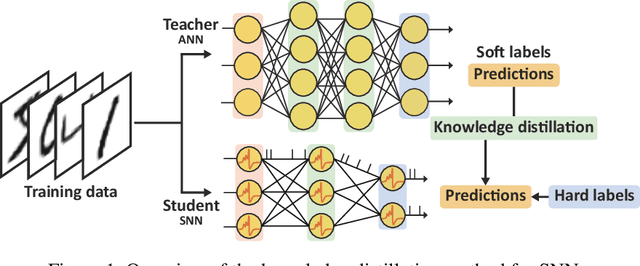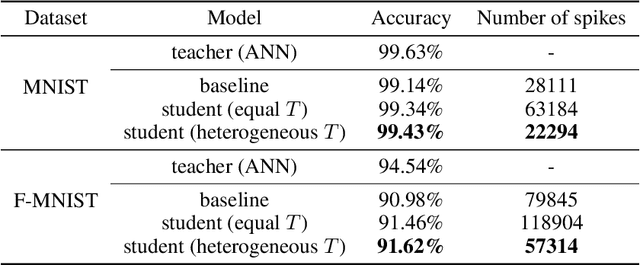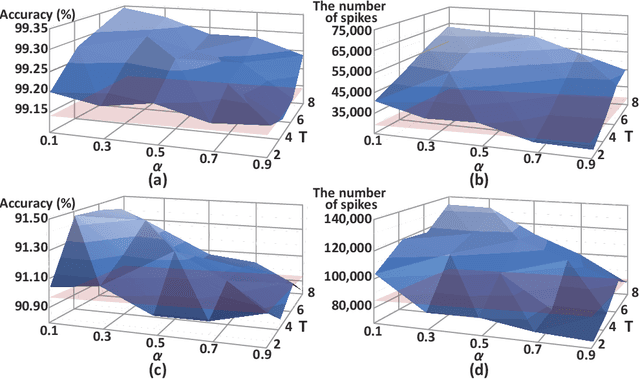Energy-efficient Knowledge Distillation for Spiking Neural Networks
Paper and Code
Jun 14, 2021



Spiking neural networks (SNNs) have been gaining interest as energy-efficient alternatives of conventional artificial neural networks (ANNs) due to their event-driven computation. Considering the future deployment of SNN models to constrained neuromorphic devices, many studies have applied techniques originally used for ANN model compression, such as network quantization, pruning, and knowledge distillation, to SNNs. Among them, existing works on knowledge distillation reported accuracy improvements of student SNN model. However, analysis on energy efficiency, which is also an important feature of SNN, was absent. In this paper, we thoroughly analyze the performance of the distilled SNN model in terms of accuracy and energy efficiency. In the process, we observe a substantial increase in the number of spikes, leading to energy inefficiency, when using the conventional knowledge distillation methods. Based on this analysis, to achieve energy efficiency, we propose a novel knowledge distillation method with heterogeneous temperature parameters. We evaluate our method on two different datasets and show that the resulting SNN student satisfies both accuracy improvement and reduction of the number of spikes. On MNIST dataset, our proposed student SNN achieves up to 0.09% higher accuracy and produces 65% less spikes compared to the student SNN trained with conventional knowledge distillation method. We also compare the results with other SNN compression techniques and training methods.
 Add to Chrome
Add to Chrome Add to Firefox
Add to Firefox Add to Edge
Add to Edge